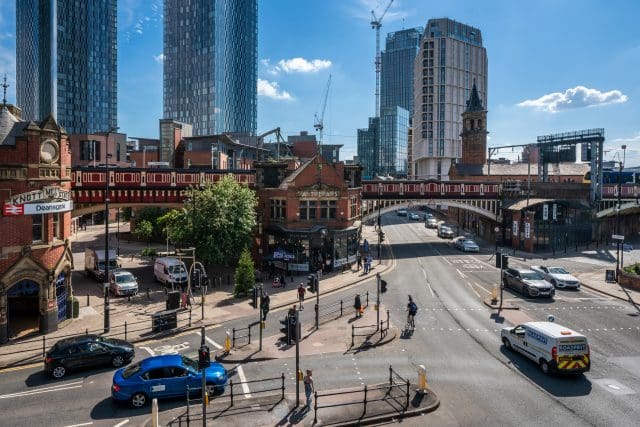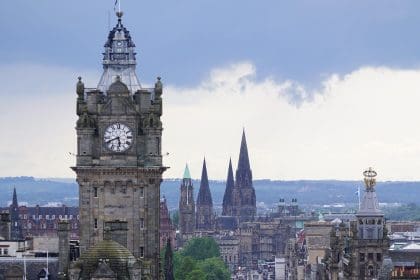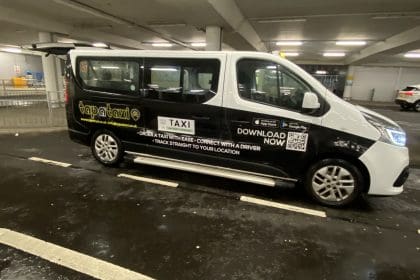Manchester Mayor Andy Burnham is calling for changes to taxi licensing laws to stop private-hire drivers operating “out-of-town” – but also believes the region has to improve its own licensing system.
Last month, Mr Burnham unveiled the Backing Our Taxis campaign which calls for new legislation to stop private-hire drivers being licensed by one local authority and working in another area.
‘Broken system’
The mayor recently revealed that believes Manchester’s taxi trade is “just about hanging on”, adding that “the taxi licensing system is demonstrably a broken system”.
He told a press conference: “In our city-region, we are on the verge of not licensing the majority of our taxis. We’re just about hanging on. But if the growth in out-of-area licenses continues, we will no longer licence the majority of our taxis.”
The Manchester Evening News reports that more than four-in-10 private-hire taxis in Greater Manchester are licensed outside the 10 boroughs, with 11 per cent of all PHVs nationally registered in Wolverhampton.
Mr Burnham said he believes this makes the enforcement of taxi safety standards more difficult and believes the changes will make the industry safer.
As part of the campaign, he is asking the government to extend VAT exemptions on taxis adapted for disabled people, as well as the plug-in taxi grant.
Unified licensing
The mayor also believes that Greater Manchester needs to “raise its game” by creating a more unified licensing system across all 10 authorities in the region.
He hopes this will make licensing in the region “more attractive for locals to go to their own town hall and not travel to the West Midlands”.
The move has been backed by Blackpool South MP Chris Webb, who told Taxi Point: “This is exactly what I’ve been demanding since my first parliamentary question nearly a year ago.
“Andy is absolutely right, we need more local control over taxis in places like Blackpool. We must back our local taxis.”
Greater Manchester Combined Authority has launched a 12-week “engagement exercise” with the trade, including public and private-hire drivers, and has already pushed back the December 31 deadline for older, more polluting taxis to be replaced under the clean air plan. The deadline is now December 31, 2026.
National approach
Accepting that some drivers do go elsewhere due to the speed and cost of processing applications, Mr Burnham said the move requires a national approach, or some local authorities would face a “risk of being undercut elsewhere”.
This view was echoed by Aqeel Arshad of firm Street Cars, in Manchester, who told the BBC: “Drivers go where is easiest, it’s perfectly legal, they don’t want to go through the extra testing in Manchester.”
“He said his business had to go for licences elsewhere in the past as the process was faster, meaning he could recruit drivers more quickly.”
We have previously looked at calls for national taxi standards. Whatever Greater Manchester’s new system looks like, the law must change to prevent cross-border working, otherwise, drivers will go to whichever council is quickest, easiest and cheapest. For operators such as Uber, this would mean having to be licensed by each authority in order for its drivers to pick up fares.




